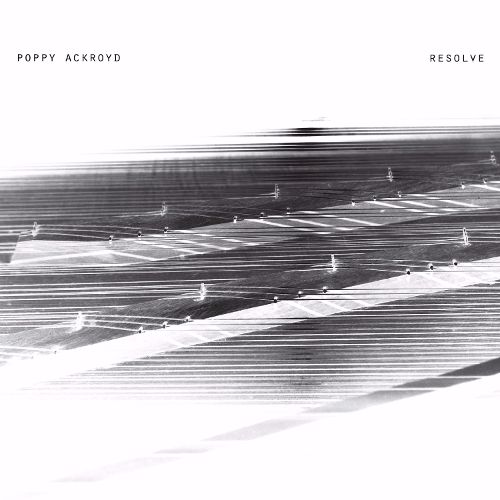
Poppy Ackroyd
Resolve
One Little Indian CD/DL
Brighton-based multi-instrumentalist and composer Poppy Ackroyd has released her fourth album, Resolve, on One Little Indian. Like her previous work, ambient neoclassical instrumentals reign here. Ackroyd’s violin, piano, and synths are abetted by percussionist Manu Delago, wind player Mike Lesirge, and cellist Jo Quail. Together they create a formidable chamber group that realizes Ackroyd’s hybrids of synthetic and organic elements with grace and delicate shadings. This is particularly true of the winsome title track and layered keyboards of album opener “Paper” and the reverberant synthetic repeats of album closer “Trains,” a fetching post-minimal excursion led by Ackroyd’s piano and violin.
All is not gentleness. Delago, in particular, adds formidable beats to several album tracks, notably “Quail” and “The Dream.” “Time,” appropriately enough, leads with drums that are then rhythmically mimicked by a repeating piano ostinato. “Stems,” at a fleeting minute-and-a-half, sets up a memorably propulsive ground bass with a plethora of auxiliary beaters: one wishes it was at least twice as long and allowed to truly blossom.
Ambient neoclassical music has become all the rage again and many of the reissues and newer work are quite good. The best of it, like Poppy Ackroyd’s recordings, present lovingly prepared arrangements, harnessing one’s attention with little details that make all the difference between surface beauty and a deeper listening experience.
